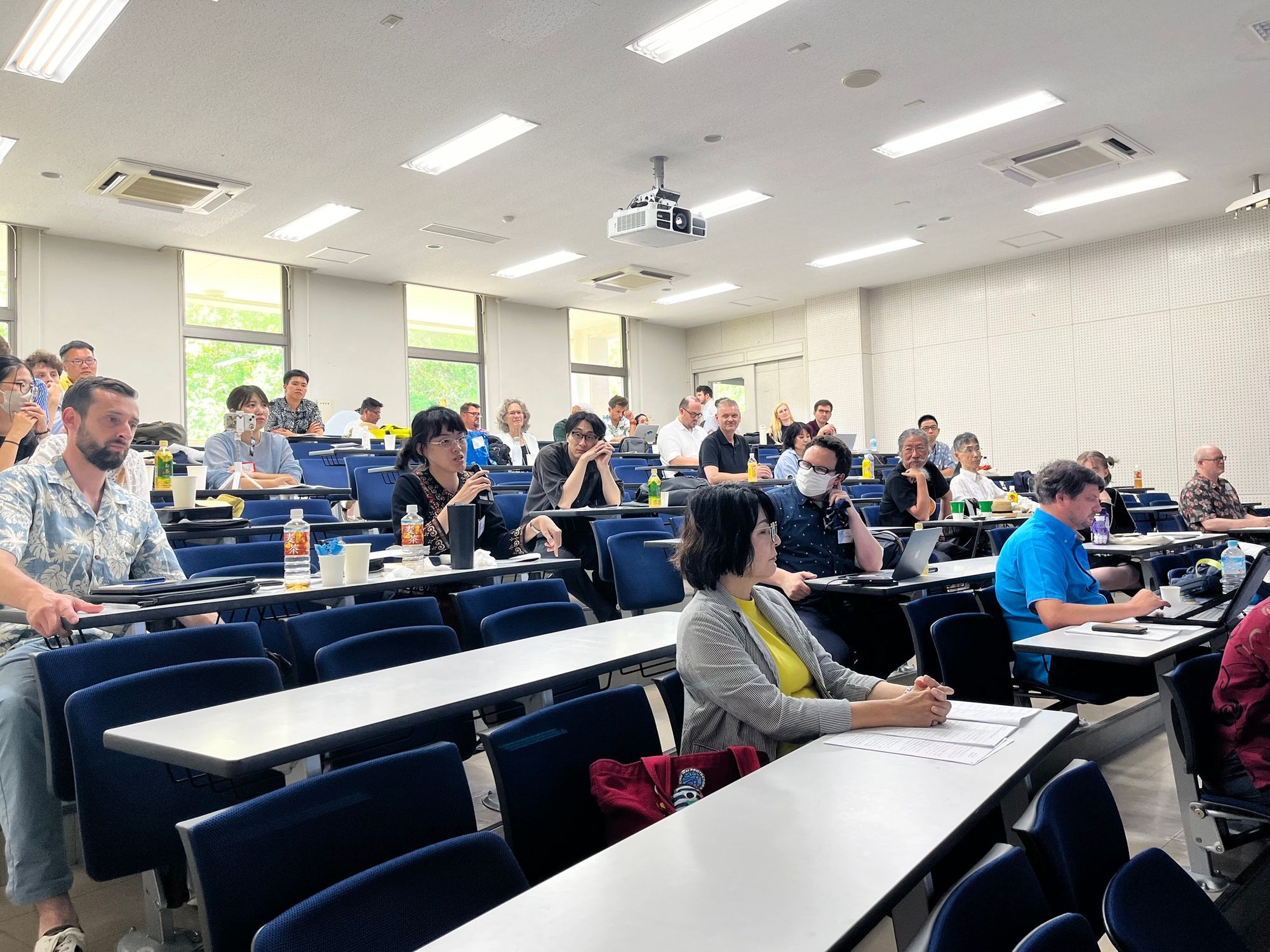Highlights from Decolonizing Futures: Transforming an Era of Environmental Catastrophe, Poverty, Hatred, Discrimination and Violence into an Era of Hope

The Second International Seminar, titled "Decolonizing Futures: Transforming an Era of Environmental Catastrophe, Poverty, Hatred, Discrimination and Violence into an Era of Hope," recently convened at the University of Meio in Nago, Okinawa. This significant event gathered more than 40 presenters from over 15 countries, offering a rich interdisciplinary platform to address critical global issues.
Grounding Discussions in the Ryukyuan context: On the Excursion Trip
The seminar commenced with an excursion around a few places of Okinawa, allowing participants to engage with the island's historical and contemporary issues. A visit to the Henoko military base highlighted the ongoing colonial impact of American and Japanese military presence in the Ryukyus. Additionally, a visit to the Nakagusuku Castle and the Nakamura residence provided insights into the cultural heritage of the Ryukyuan kingdom. The Sakima Art Museum showcased "Illustrations on the Battle of Okinawa" by Iri Maruki and Toshi Maruki, offering a poignant reflection on the war's devastation. Our excursion trip was a constructive way to ground some of the seminar's discussions in a tangible historical context.
A Confluence of Disciplines: Panels, Workshops, Presentations, and Films
The seminar featured three main panels, numerous presentations, and film exhibitions, which collectively enriched the discussions on the main topics of the seminar. The seminar's interdisciplinary nature was one of its defining features, incorporating perspectives from various fields such as social linguistics, anthropology, artivism, international law, heritage studies, and literature. This broad approach facilitated a comprehensive understanding of the complex issues being covered at the seminar.
Panel 1: Decolonizing Methodologies
The first panel, led by Miho Zlazli, Seira Duncan, and Carles Jornet, focused on decolonizing academic methodologies. The panelists critiqued current research practices and advocated for approaches that place Indigenous communities at the center of the research process, integrate their knowledge systems, and reject extractivist trends in research. This session underscored the need for academia to evolve in ways that are inclusive and representative of marginalized voices.
Panel 2: Indigenous Feminism in Ryukyuan Societies
Professor Madoka Hammine led the second panel alongside Dr. Yuko Osakada, Risako Sakai, and Olivia Doyle, addressing Indigenous feminism within Ryukyuan and Ainu societies. This panel explored contemporary issues such as language revitalization and environmental conservation from a feminist perspective. The discussions highlighted the interconnectedness of gender, culture, and environmental stewardship, emphasizing the role of Indigenous women in leading societal transformations.
Panel 3: Art and Activism
Antonie Grahamsdaughter led the third panel on art and activism, featuring a special presentation by Kanae Uema, the curator of the Sakima Art Museum. This panel explored the synergy between art and activism in various contexts, including Okinawa, Sweden, and Colombia. The presentations demonstrated how art can be a powerful medium for activism, challenging oppressive structures and inspiring social change.
Knowledge Exchange: Workshops and Presentations
Presentations related to Okinawa were abundant on Day 2. Presenters, all of whom are listed here, addressed critical issues such as language revitalization, the geopolitics of tourism and ecotourism, from the perspectives of international scholars coming from various disciplines. One highlight was a presentation by local resident Toshio Takahashi, who reported on PIFAS and raised awareness about the environmental and health challenges faced by Okinawan communities.
The day’s presentations were foregrounded by workshops on language revitalization, which infused the audience with energy and enthusiasm. Sachiyo Fujita-Round, Matthew Topping, Akiko Yokoyama, Joy Taniguchi, and Jelisava Sethna facilitated activities that immersed participants in the process of language revitalization, showcasing the dedication and creativity required to preserve and revive endangered languages.
Throughout the seminar, more than 25 presentations covered a wide range of topics. CEMiPoS members and friends' presentations included discussions on scientific racism and settler colonialism in Ainu Mosir by Professor Hiroshi Maruyama, and research and activism by Olivia Doyle. Professor Kamrul Hosain's presentation on the cultural rights of Indigenous peoples and Sutej Hugu's examination of political movements among Indigenous groups in Taiwan were particularly noteworthy. I-Yun Cheng's insights into Indigenous voices in Taiwanese museums added depth to the discussions.
Intergenerational Exchange: Highlighting Student Participation
A distinctive feature of this year's seminar was the active participation of young students from Meio University. Apart from their support during the preparation of the seminar, some students had the chance to participate in the presentations. Their contributions and subsequent discussions provided a valuable platform for intergenerational exchange. This engagement not only enriched the seminar but also fostered mentorship and collaboration, essential for the future of academia and emerging scholars.
Interdisciplinary Perspectives Towards Decolonizing Futures
The Second International Seminar on "Decolonizing Futures" was a resounding success, bringing together a diverse group of scholars, activists, and students to address some of the most pressing issues of our time. Through interdisciplinary panels, presentations, and dynamic workshops, the seminar facilitated meaningful dialogues and forged connections that aim to contribute to a more hopeful and equitable future. The event highlighted the importance of decolonizing academic practices, uplifting Indigenous voices, and leveraging art and activism to drive social change. As participants return to their respective fields, the insights and collaborations fostered at this seminar will undoubtedly inspire continued efforts towards transforming our world into an era of hope.